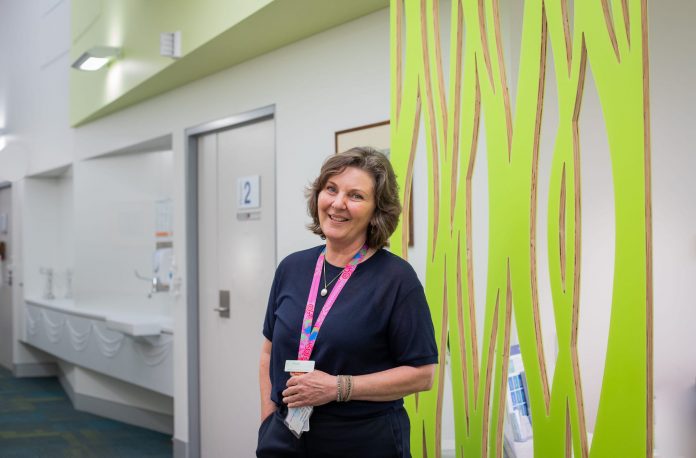
Every year thousands of West Australians receive support from palliative care professionals. Whether that care is delivered within a medical facility or at home, the people working in this field are incredibly dedicated.
But sometimes there’s a palliative care provider that stands out from the rest and one that’s deserving of formal recognition. The Albany Community Hospice is one of those providers and recently received Palliative Care WA’s highest accolade, the Douglas McAdam trophy, in recognition of: Outstanding Delivery of Holistic Palliative Care Excellence in Any Setting.
So what does the Albany Community Hospice actually do and how does it operate? Clinical manager, Fiona Jane, took me on a tour of this state-of-the-art facility while shedding light on what many consider to be a dark subject.
“Our mission is to provide palliative care, education and support. We want all members of the community to be able to experience death with grace; for their death to be in a manner and place of their choosing. Many people think palliative care is exclusively about death and dying; giving end-of-life care. It was originally that way but modern palliative care has evolved to encompass care and support for anyone suffering an incurable illness. And that can start from the moment of diagnosis.”
Fiona adds that, due to misconceptions, many people miss out on the benefits that a hospice like this one can provide.
“There’s a robust body of evidence that shows early access to palliative care provides a greatly improved sense of control and hopefulness – not just for the patients but for their family, their carers and the wider community.”
Palliative care is also not just about the doctoring and nursing side of reducing suffering. It’s a multidisciplinary approach that calls on numerous ancillary health providers, social workers and mental health professionals. Every week the Hospice’s multidisciplinary team meets to discuss each patient’s past week so they can plan for the week ahead. The highly trained nursing team then put those plans into action.
Having cared for nearly 200 patients last year this eight-bed facility always has patients of varying ages at various stages of their illness. Some go home or move to residential care but around 60 per cent take their last breath in the Hospice’s supportive surroundings.
And for the staff, the ability to cope with death and dying day after day, week after week, requires a true love for their vocation.
“Palliative care is a spiritual practice,” Fiona says. “And there’s no denying that sometimes my cup is overflowing with the tears I want to cry. It sounds twee to say it, but this work is a calling and also a privilege.
“I see us as facilitators of wishes as we help our patients achieve the type of death they want. We also help them gain resolution of things that may be troubling them. The gratitude we receive is just as cup-filling.”
With 40-plus employees, gourmet meals cooked onsite, rooms with private courtyards and furnishings befitting a five star hotel, it’s fair to ask how this hospice funds it’s services.
“We’re a licensed private hospital but the only thing patients pay for are their pharmacy items,” Fiona explains. “We get some funds from WA Country Health, private health insurers and the Department of Veteran Affairs. But a large amount comes from the hard work of our volunteers via community fundraising events and our Butterflies Op Shop which brought in over $100,000 last year.”
Of course, while funding is important, it’s what you do with it that really counts and the high level of care this hospice delivers has created a place where the pursuit of quality in life and quality in death go hand in hand.


































